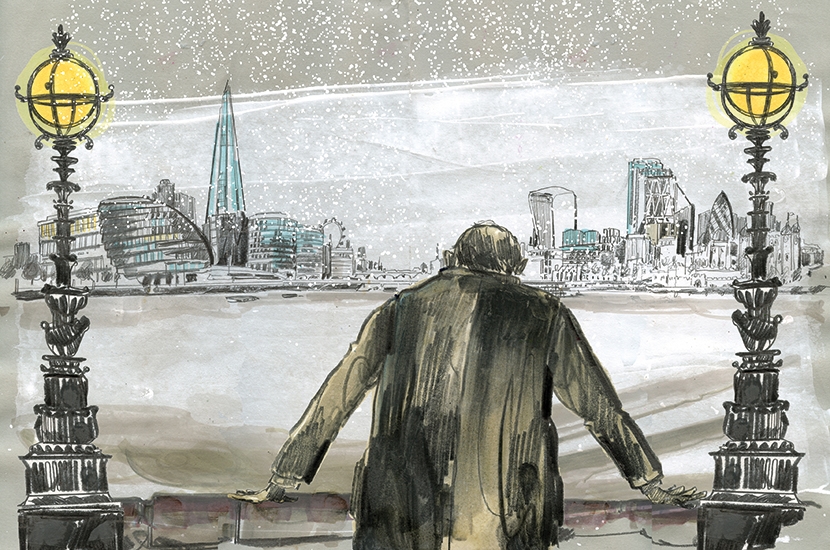The silenced city has been, for some, uncanny. Deserted evening streets, darkened pubs, shut shops and the absence of fellow footsteps might suggest that some essential spirit has fled. Yet this is exactly the wrong way to look at it, says the novelist, historian and biographer Peter Ackroyd. For him, both lockdown and winter provide opportunities to see London in a different light.
‘The silence and the empty streets are very appealing,’ he says. ‘This is the time when Londoners get to hear distant church bells,’ he adds. ‘The identity of the city changes enormously in the winter and loses some of its majesty — but it retains its life and light. Twilight comes quickly and the glow of the evening light permeates in ways that are not possible during other seasons. And the city becomes a hibernating animal which radiates warmth even as it sleeps.’
Peter Ackroyd, 71, is the chronicler of London’s soul. As well as his histories of the city and its river, a great many of his novels — including the unsettling metaphysical thriller Hawksmoor and the lovingly evoked Victoriana of Dan Leno and the Limehouse Golem — have focused on the city’s darker, more obscure corners, and those vulnerable figures, standing at an awkward angle to society, who haunt its shadows. Yet his range is never predictable. His new novel, Mr Cadmus, is a darkly witty fable set in a remote village in north Devon; what begins as an E.F. Benson-esque black comedy of manners between two ladies of a certain age and their new Italian neighbour soon blossoms into something altogether stranger and more unsettling — a tale of vengeance that begins to take on the swerving, lurid velocity of a fever dream.








Comments
Join the debate for just £1 a month
Be part of the conversation with other Spectator readers by getting your first three months for £3.
UNLOCK ACCESS Just £1 a monthAlready a subscriber? Log in